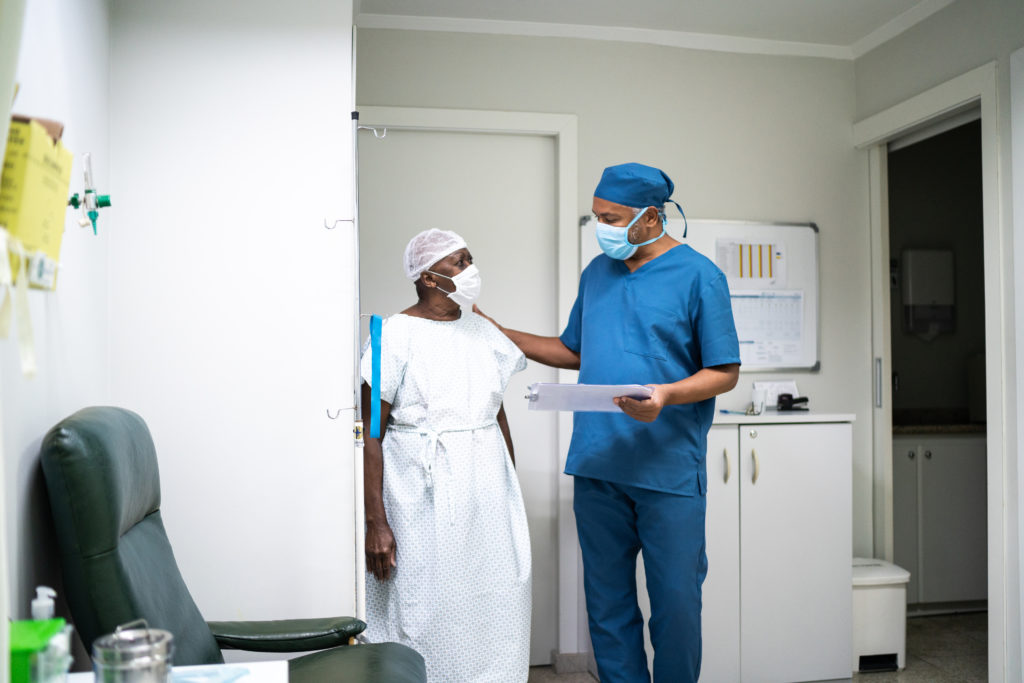

During Kigali’s situation analysis, the multi-stakeholder City Executive Committee identified a lack of systematic multidisciplinary clinical decision-making, along with incomplete treatment planning and the absence of both treatment protocols and resource-adapted guidelines to manage common and curable cancer sites. These issues typically led to under-informed decision-making and delays in patient treatment.
The project aims to improve care coordination for those patients with high suspicion or confirmed diagnosis of breast or cervical cancer attending the country’s five main cancer centres.
The project is designed to strengthen the capacity of five cancer care institutions managing breast and cervical cancer patients in Kigali, Butaro and Butare: the King Faisal Hospital, Rwanda Military Hospital, Kigali University Teaching Hospital, Butaro Cancer Centre of Excellence and Butare University Teaching Hospital.
Developed in tandem with the Rwanda Biomedical Centre, the project will help these five institutions to implement a patient navigation programme, using the digital platform JOIN, which will develop and sustain an open, secure, and inclusive digital ecosystem. This ecosystem will, in turn, deliver more effective and efficient cancer diagnosis and treatment, while improving both patient outcomes and quality of life.

Five nurse navigators and one project coordinator have been recruited and trained to use the JOIN platform, enhancing data literacy, and have completed a scientific visit to Nairobi, Kenya. The five nurse navigators have also completed a virtual training course on implementing a patient navigation programme.
This website uses its own and third-party cookies to improve the browsing experience. Read the Cookies Policy.